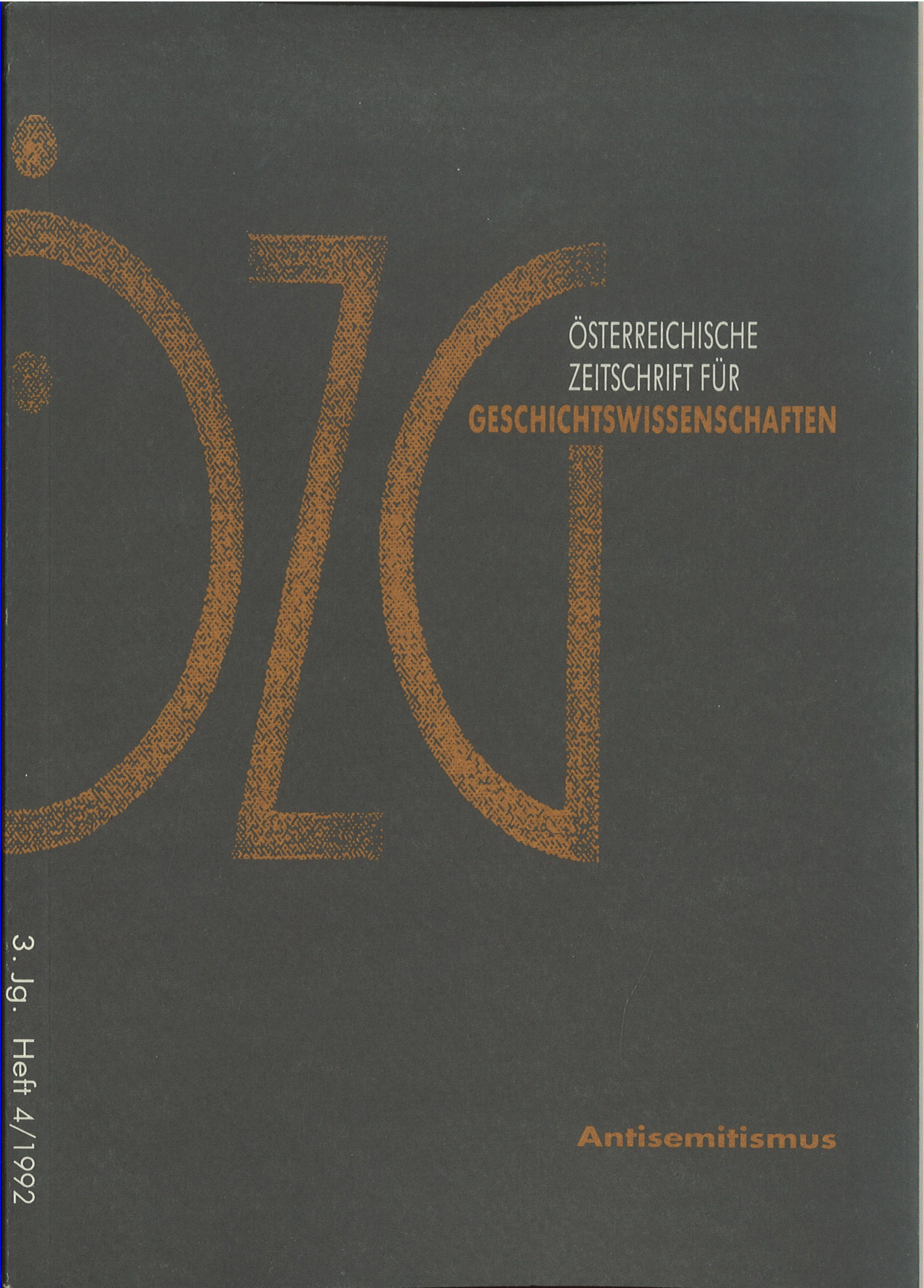Antisemitismus im lebensgeschichtlichen Kontext
Soziale Prozesse der Dehumanisierung und Schuldzuweisung
DOI:
https://doi.org/10.25365/oezg-1992-3-4-3Abstract
A stage model for the gradual process of de-humanization of Jews after 1933 is developed by means of a biographical case-study based on interviews with bystanders and persecutors of the Third Reich which are counterposed to interviews with Jews who experienced persecution in Germany and Europe. These stages correspond to the state policy of deprivation of rights and extinction. In the first phase (1933-1935) contacts between Jews and non-Jews decrease. The second phase (1934-1938) starts with the Nuremberg Laws and ends with the November pogrom 1938. The isolation and avoidance of Jews increases. Thirdly, 1938-1945: the persecution of the Jews and mass transports lead to the point, in which Jews are totally de-humanized and they disappear from public awareness, until they appear again as concentration camp prisoners towards the end of the war. In the fourth phase, after the end of the Third Reich, the socially created awareness of the extinction of Jews corresponds to the projection of feelings of guilt onto the Jews. The creatures without identity are turned into ,guilty' Jews.


